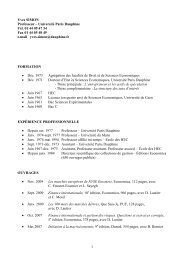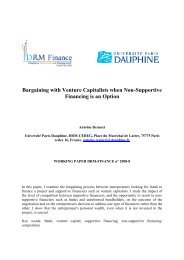Corporate governance and earnings management ... - CEREG
Corporate governance and earnings management ... - CEREG
Corporate governance and earnings management ... - CEREG
You also want an ePaper? Increase the reach of your titles
YUMPU automatically turns print PDFs into web optimized ePapers that Google loves.
(due partly to the needs coming from the reunification) to find new ways of financing coming<br />
from Anglo-American stock-markets, some of the top managers of the bigger <strong>and</strong> the most<br />
internationalized listed German companies began to think the development of their companies<br />
after the model recommended by American consultants <strong>and</strong> academics in favor of shareholder<br />
value (see also the examples given by Jürgens, Naumann & Rupp, 2000, p. 74). Presumably<br />
under this influence the government issued a series of regulations aiming at developing a<br />
more Anglo-Saxon type of <strong>management</strong>: creation of a “German SEC” (1995) merged in 2001<br />
with the German Financial Services Authority, detaxation of capital gains (1998), allowance<br />
for the creation of private pension funds (1998), creation of the “new stock market” (1997),<br />
abolition of multiple voting rights <strong>and</strong> restrictions for the banks to use their proxies <strong>and</strong> crossshareholdings<br />
(1998), introduction of a m<strong>and</strong>atory bid into the new takeover law of 2001,<br />
creation of a new private organ for the promotion of international accounting st<strong>and</strong>ards.<br />
All these measures <strong>and</strong> particularly the related rapid development of private pension funds<br />
guided by shareholder value principles significantly changed the l<strong>and</strong>scape <strong>and</strong> the style of<br />
<strong>management</strong> of the elite of the big listed companies <strong>and</strong> banks (Jürgens, Naumann & Rupp,<br />
2000, p. 71). This extremely rapid change may explain why as soon as 1998 it was permitted<br />
to the listed German groups to opt for the international or even the American accounting<br />
principles <strong>and</strong> why at Brussels there was no opposition from the part of Germany to adopt the<br />
new international rules concerning goodwill in matter of consolidated accounts. All in all the<br />
famous laws of 1998 on the “Raising of Equity Relief - Kapital-Aufnahme<br />
erleichterungsgesetz” <strong>and</strong> Kontrag, as described by German authors (Böcking & Orth, 1998;<br />
Claussen, 1998; 1999; Hommelhoff et al., 1999; Haller & Eierle, 2004), <strong>and</strong> commented by<br />
Richard (2002c; 2002b), have permitted a clear evolution of the big German capital towards<br />
the US criteria of <strong>management</strong>.<br />
65



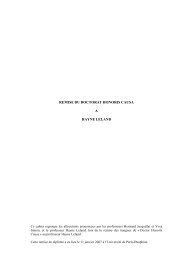
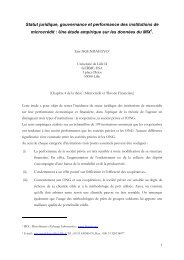
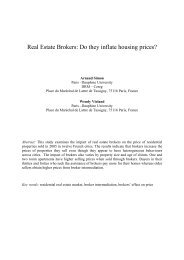
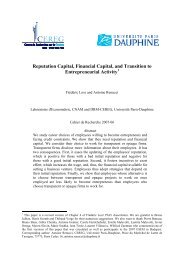
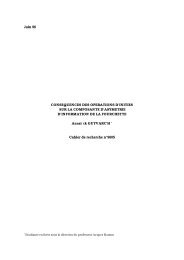
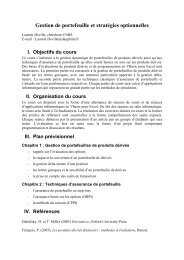
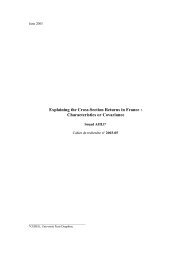
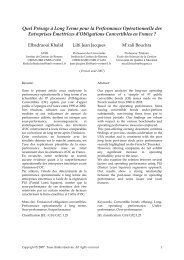

![& 6 ] ^ F ]^ - CEREG - Université Paris-Dauphine](https://img.yumpu.com/33326502/1/184x260/-6-f-cereg-universitac-paris-dauphine.jpg?quality=85)

